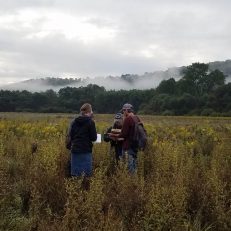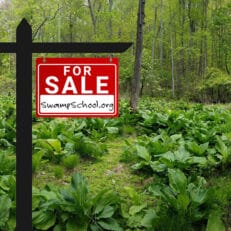Product Description
On-line & On-demand
Unlock the complexities of wetlands within the North Carolina real estate landscape with our comprehensive 4-hour online masterclass, specifically tailored for real estate professionals. This course delves into the integral role that wetlands play in the ecological fabric of the region and the significant impact they have on property values, development potential, and regulatory compliance. Join us to gain a competitive edge in the marketplace by understanding the intricate balance between environmental stewardship and real estate development.
Key Features:
- Expert-Led Sessions: Engage with leading environmental scientists and real estate experts specializing in North Carolina’s unique wetland ecosystems and property market dynamics.
- Interactive Learning Platform: Experience a state-of-the-art online classroom environment that facilitates live interaction, Q&A sessions, and real-time case study analyses.
- In-Depth Regulatory Guidance: Receive up-to-date information on state and federal wetland regulations, including the Clean Water Act and state-specific guidelines impacting land use and development in North Carolina.
- Valuation Techniques: Learn how to assess and communicate the impact of wetland proximity and health on property valuation, using advanced appraisal methods and market analysis.
- Risk Management Strategies: Understand the risks associated with wetland properties, from flooding to insurance implications, and how to navigate them effectively.
- Sustainable Development Practices: Explore how to integrate sustainable development practices into projects that align with wetland conservation efforts, enhancing property value and environmental outcomes.
- Comprehensive Resource Materials: Gain access to a wealth of resources, including regulatory documents, valuation tools, and ecological reports that can serve as a reference in your professional practice.
What You Will Learn:
- The Ecology of Wetlands: An overview of North Carolina’s wetland types, functions, and the ecological benefits they provide.
- Wetland Laws and Regulations: A detailed breakdown of the legal framework governing wetlands in North Carolina and how it affects real estate.
- Impacts on Property Values: Insights into how wetlands can both positively and negatively influence property values and marketability.
- Navigating Development Challenges: Strategies for successful development near wetlands that comply with environmental regulations while maximizing property potential.
- Case Studies: Real-world examples of North Carolina properties that illustrate the complexities and solutions associated with wetland-related real estate transactions.
- Future Trends: An analysis of emerging trends in wetland conservation and real estate, preparing you for future market shifts.
Who Should Enroll:
This course is ideal for real estate agents, brokers, appraisers, developers, and anyone involved in land acquisition, management, or development in North Carolina. Whether you are looking to refine your expertise for client advisory, stay ahead of regulatory changes, or optimize property investments, this masterclass equips you with essential knowledge and skills.
Certification: Upon completion of the course, participants will receive a Certificate of Completion, demonstrating their enhanced understanding of North Carolina wetlands in the context of real estate.
Enroll now and bridge the gap between real estate prowess and environmental consciousness in one of the nation’s most diverse ecological landscapes.
The Swamp School is an established environmental compliance training school. We teach thousands of environmental professionals annually on various wetland related topics. We are pleased to also be a North Carolina Real Estate Commission (NCREC) Certified education provider (#1624).
The class is approved for 4 Continuing Education NCREC elective credits that can count towards your North Carolina Real Estate License renewal. The NCREC approved course number is: 4011.
NCREC Education Provider #: 1624
NCREC Approved Course #: 4011
Important: NCREC requires that licensed Real Estate brokers review and confirm acceptance of the Swamp School’s Policies and Procedures Disclosure (PPD) before they purchase this class. A copy of the Swamp School’s NCREC approved PPD can be downloaded HERE. We will ask you to send a signed receipt of the PPD at the start of the class. This will be done online. The PPD is also included in our school terms and conditions.
Time Limits
Students in an On-Demand Course (asynchronous distance learning) must complete all sections within 30 days of enrollment of the course or by June 10, 2024 whichever comes first.
Technical Support
If you need help with the class please start a chat or give us a call during normal business hours (M-F, 9-4 ET). After hours support requests will be addressed the next business day.
Class Format
This class is offered online as a asynchronous distance learning program. It incudes four (4) hours of subject presentations. Viewing hours are tracked and it is required that 90% of the subject presentations be viewed in order to receive credit for the class. In addition there are short quizzes at the end of each presentation. These are meant to verify that the student did in fact watch the presentations. Students are given multiple tries to pass the quizzes and they are able to re-watch the videos if needed. However, continuing education credit is only counted for one full viewing of each presentation. Multiple views do not add additional continuing education hours. An overall course quiz grade of 70% is required to receive credit for the class.
Students will be required to have some basic computer and internet skills in order to access and complete this class. Students will be asked to upload several documents for ID verification and the PPD receipt. These documents can be scanned or photographed using a cell phone. Students will need reliable internet access during the course.
The course also incudes a number of video help presentations that are optional and do not count towards continuing education hours. These are provided as aids to the student to accommodate different levels of experience with online learning programs. Additional time should be allowed for getting up to speed if the student is new to online learning.

 You can earn this badge and add it to your LinkedIn or Facebook profile!
You can earn this badge and add it to your LinkedIn or Facebook profile!




